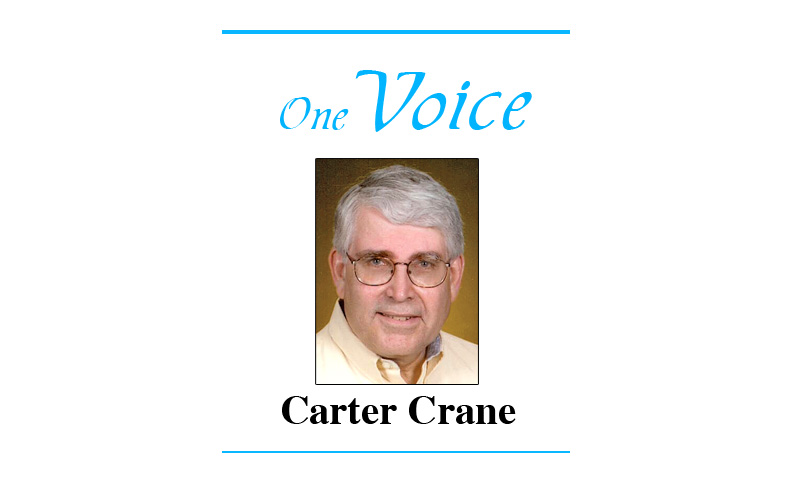
Many news items create overlapping thoughts and at the same time stimulate connected thinking.
The U.S. Second Amendment in the Bill of Rights on the citizens’ rights to bear arms is a prime example.
Political implications continually are connected to assertion of the Second Amendment.
One question asked Tuesday this week of U.S. Supreme Court nominee, Ketanji Brown Jackson, by a member of the U.S. Senate Judicial Committee, was her belief in Second Amendment rights. The softball question only was to set up other questions on her previous rulings in a lower court. This week she may find out if she will become the first black female on the nine-member U.S. Supreme Court.
Earlier this week, the Second Amendment came into focus in Indiana when governor Eric Holcomb signed into law the bill passed by the Indiana legislature which eliminates the need to secure a permit to carry handguns. The measure was controversial in Indiana and has been a focus in other states.
Illinois requires permits for lawful citizens to carry handguns.
Opponents in Indiana made the claim that the law only would increase the number of handguns on the streets of communities in Indiana. The ban on permits does not include felons and those individuals who do not have legal permission to carry handguns because of previous problems with the law.
The permit abolishment in Indiana comes at a time when homicides have increased throughout the Nation, especially in major cities. Opponents to the ban said the new law would cause increased difficulty for police to know and understand who does not have permission to carry handguns.
Individual rights of law-abiding citizens is at the center of new law and, of course, there are political implications. Movements to diminish the roles of governments is at the heart of the matter with concerns of Big Brother dictating many restrictive laws. The Indiana case will offer firm scrutiny to understanding the results for other states’ decisions, including in Illinois.
Political debate, dissent, and demagoguery, have increased at a fast pace the last 20 years and more and there is no sign in sight of a diminution. It is good that we can debate, offer opinions, and take firm stands, however, there is every indication that political discourse is pointed, pointless, and pungent. Scoring points with financial backers and partisan voters often prevail, rather than efforts to work together.
Votes on the U.S. Supreme Court appointments offer a highlight to an attitude shift in partisanship. There remains every indication that representatives can make their points without stirring the pot of dissension, looking for a fight, and still maintain integrity, honesty, and openness. We can debate on the reasons for the shift from cooperation and understanding to divisiveness and combat. Perhaps many of us must take a look at our attitudes and encourage our representatives to be more conciliatory than combative and still stand for ideology. We can trace political heritage in an effort to seek blame, however, each concerned citizen must do just a little better at cooperation.
• Our system is a far cry from the Russian despotism which strikes at the heart of chaos in Ukraine. Dissension is not allowed in Russia and the brutality one day will catch up with Vladimir Putin, dictator, war criminal, and brutal human without a conscience. He evidently has allowed himself to be pushed into a corner psychologically and thinks the only way out is destruction. It is a world problem now. North American Treaty Organization (NATO) forces must stand united and stand strong.
• At the heart of the Russian problem, among other aspects, is an inability to see other individuals as acceptable. Differences in the American spirit in the United States always has existed. There have been unacceptable attitudes in the U.S. history of not understanding difference in our culture, however, we continue to strive for compatibility with fellow citizens as a way forward. Our glasses more often than not are half-full and not half-empty. The U.S. population is made of every ethnic group, color, differences. It takes work and offers struggles, however, because of a shared vision of how to lead a balanced life with our neighbors, tolerance and understanding lead us to better roles and better lives. Balance, charity, dignity, are all terms which lead to individual understanding. When we allow others to be divisive, we are less happy and less balanced. Mr. Putin is a prime example and the Ukraine spirit to defend the country is a shining example of spirit defining our roles.
• It is good to share in cultures of other members of society as long as the competitive spirit in one does not seek dominance over other cultures. We must understand we are the United States. It is beneficial to understand other cultures which encompasses the U.S. regardless of national, religious, ethnic origin. We are all members of the human race.
Clear and Concise Week 12 Year 3: United Nations, deference to others, tolerance, seeking peace as a way of life, will be the salvation to society in all countries. We in the United States can lead the way by being open to others’ customs, personalities, and traditions.

